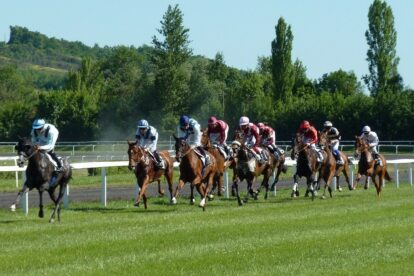For the first time in modern history, horse racing in Britain was halted for a day on September 10th. It was a unique moment for the sport and the industry surrounding it, since it rarely gets the spotlight and it almost never gets political, as it did this time around.
The move was led by the British Horseracing Authority (BHA), and it was organized in opposition to the so-called “racing tax”. Four races scheduled for the day were called off: Carlisle, Uttoxeter, Lingfield, and Kempton.
What’s driving the Protest?
The UK Treasury is working on changing its tax policy in an effort to “simplify and harmonize” the online gambling duty tax. Gambling on certain sports is common in Britain; for instance, some of the best US Open betting sites are mostly visited by UK bettors, where tennis is a bit of a national sport, but horse racing was off limits until now.
For years, the tax on winnings from betting on horse racing was held at 15 percent. Now, the government plans to treat it the same as it does betting on slot games and raise the tax to 21 percent. That’s what’s caused the protest. Experts from CCN show that there’s an increased interest in horse racing wagers from an international crowd and that this has caused the government to change policy.
What the Protest Looked Like
The races held in Lingfield Park, Carlisle, Uttoxeter, and Kempton Park were called off, which was the major part of the protest. This was coordinated by the BHA and got the attention of the media.
Racing industry representatives, including owners, trainers, jockeys, and stable staff, assembled in Westminster for a campaign event. Over 200 people attended, including key figures from the industry.
What makes it Historic?
This is the first time that the industry has decided to stop all racing events voluntarily. The scale of the protest is therefore like nothing before, and it goes to show that the industry takes the tax proposal very seriously.
The racing world isn’t political in nature, and it very rarely expresses opinions on matters of public policy, even when it affects how the races are operated. This tax increase is seen as a move against the world of racing and against its growing popularity.
What Will the Economic Impact Be?
The numbers are out on the effect the tax will have on horse racing in the UK. They are pretty stark, and the industry will have to adjust to them if it wants to grow.
The proposed tax changes could cost £330 million in lost revenue over the first five years. This means 2,700 people working in horse racing will lose their jobs in the first year.
The overall value of the industry is £4-4.1 billion annually, supporting some 85,000 jobs, with a huge effect on the local economy. Industry insiders claim that stable yards, racecourses, and training operations will be the first to cut back.
Voices from the Industry
Charles Allen, the BHA Chair, has come out with vocal opposition to the new tax policy. He said that the new approach is “nothing short of an existential threat for our sport.”
Allen also stated that:
“We need every part of our industry — trainers, jockeys, stable staff, racecourses, and fans — to stand together and make their voices heard. We are Britain’s second largest spectator sport… yet all of this is now being put at risk by a change that would devastate our funding model and the livelihoods that depend on it.”
Government Position and What Happens Next
The government has decided to stand behind its initial position and stated that it is part of a larger trend regarding online gambling that will affect other sports, not just horse racing. The official position is also that the practice of gambling itself has become widespread, and public policy needs to adjust accordingly.
The autumn budget will be decided on in November this year, so there’s a chance for the government to react to the protest, even though it doesn’t seem likely it will. The immediate next move could be some negotiation between BHA and the administration.
To Sum Up
BHA has staged a protest against the change in government policy towards taxing gains from horse race betting. It was taxed at 15 percent, and now it will be taxed at 21 percent, the same as casinos. The protest involved stopping all the races on September 10th. It was the first such protest in history and gained a lot of attention.
At this point, it doesn’t seem the administration will change its policy, but the protest has managed to get the conversation started. If the policy remains as planned, it will lead to losses and layoffs in the horse racing industry.


